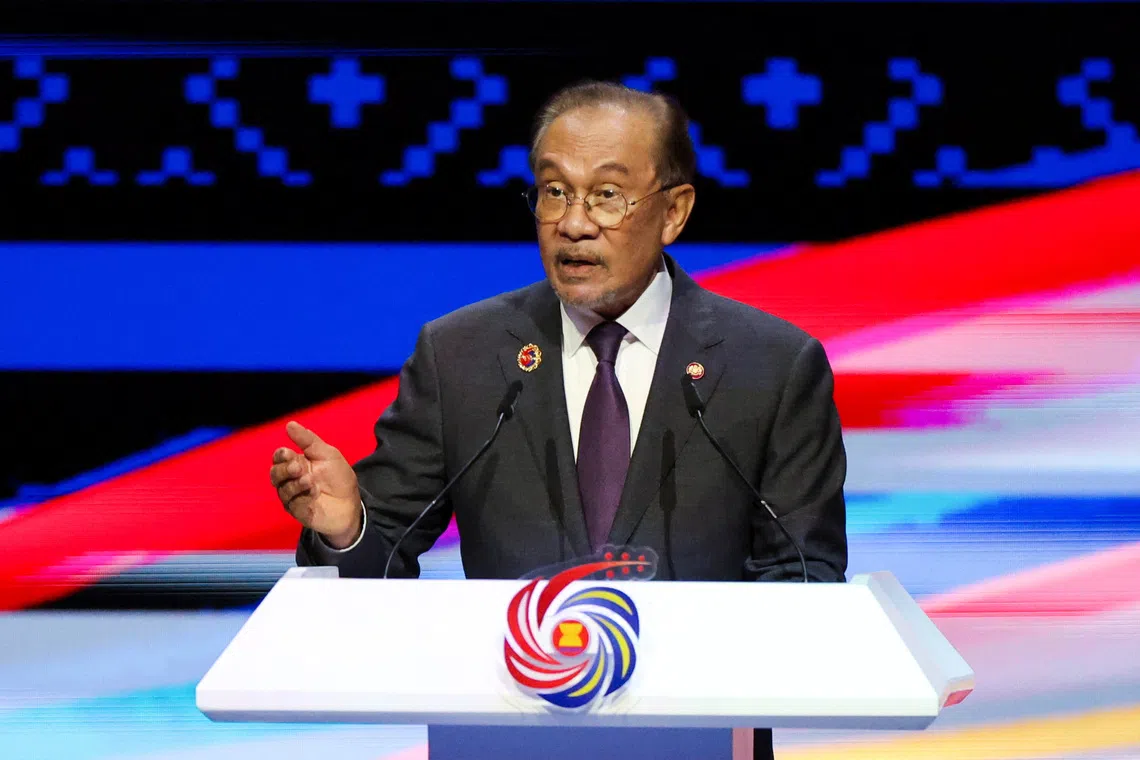Malaysia’s Anwar says $186 million magnet plant to boost rare earth sector: Report
Sign up now: Get ST's newsletters delivered to your inbox

Malaysian Prime Minister Anwar Ibrahim said the collaboration will bolster Malaysia in the advanced materials and clean technology sectors.
PHOTO: REUTERS
Follow topic:
KUALA LUMPUR – Malaysian Prime Minister Anwar Ibrahim said the development of a RM600 million (S$185.8 million) super magnet manufacturing facility in the state of Pahang will strengthen the nation’s rare earth sector, state media reported.
In July, Australia’s Lynas Rare Earths and South Korea’s JS Link signed a deal to develop a 3,000-tonne neodymium magnet manufacturing facility near Lynas’ advanced materials plant in Malaysia’s Kuantan district.
Datuk Seri Anwar said Malaysia’s trade minister would monitor the project, as it involves rare earth processing, state news agency Bernama reported on Nov 1.
“JS Link has already purchased the land and wants to begin operations, so this is no longer a memorandum of understanding,” Mr Anwar said. “The investment is in, the land is ready, so this is about accelerating the process.”
The collaboration will bolster Malaysia in the advanced materials and clean technology sectors, he said, while supporting efforts to build a supply chain for critical minerals.
Malaysia has around 16.1 million metric tonnes of rare earth deposits, according to government estimates, but it lacks the technology to mine and process them.
The country is seeking foreign investment and technology sharing opportunities to mine and process raw rare earths.
Rare earths are essential in high-tech manufacturing, including for electric vehicles, semiconductors and missiles.
The Malaysian government is reportedly in talks with China on rare earth processing, and in October it signed a deal with the US

